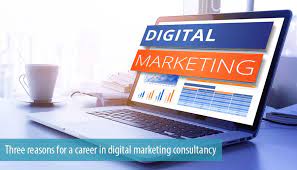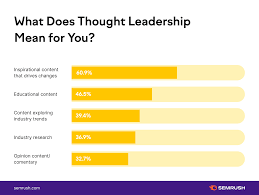Unleashing the Power of Digital PR: London’s Premier Agency Takes Communication to New Heights
Digital PR Agency London: Unlocking the Power of Strategic Communication
In today’s fast-paced digital landscape, businesses face the challenge of standing out among the noise and capturing the attention of their target audience. This is where a digital PR agency in London can play a crucial role in helping businesses thrive.
A digital PR agency combines traditional public relations strategies with cutting-edge digital tactics to create a powerful communication approach. With London being a hub for innovation and technology, partnering with a reputable digital PR agency in this vibrant city can give businesses a competitive edge.
One of the key advantages of working with a digital PR agency is their ability to harness the power of online platforms and social media. These agencies have deep knowledge and expertise in leveraging various digital channels to amplify brand messages, engage with audiences, and generate meaningful conversations.
Digital PR agencies in London understand that effective communication goes beyond simply broadcasting messages. They employ strategic storytelling techniques to create compelling narratives that resonate with target audiences. By crafting authentic and engaging content, these agencies help businesses connect with their customers on an emotional level, building trust and loyalty.
Moreover, a reputable digital PR agency understands the importance of data-driven decision-making. They utilize advanced analytics tools to measure the impact of their campaigns, track key performance indicators, and refine strategies accordingly. This data-driven approach ensures that businesses receive measurable results from their investment in digital PR efforts.
London-based digital PR agencies also possess extensive media relations expertise. They have established relationships with journalists, influencers, bloggers, and industry experts across various sectors. Leveraging these connections, they can secure valuable media coverage for their clients, enhancing brand visibility and credibility.
Furthermore, working with a local digital PR agency offers businesses the advantage of understanding the unique characteristics and preferences of London’s diverse audience. These agencies have an intimate knowledge of local trends, cultural nuances, and industry landscapes that can be invaluable when crafting targeted communication strategies.
Collaborating with a professional digital PR agency in London allows businesses to focus on their core competencies while leaving the complexities of communication to the experts. These agencies have a dedicated team of specialists who stay up-to-date with the latest digital trends, ensuring that businesses receive innovative and effective solutions.
In conclusion, a digital PR agency in London can be a game-changer for businesses looking to navigate the dynamic digital landscape successfully. From strategic storytelling and social media engagement to data-driven decision-making and media relations, these agencies provide a comprehensive approach to help businesses unlock their full potential.
If you’re looking to elevate your brand’s visibility, engage with your target audience effectively, and achieve tangible results in the digital realm, partnering with a reputable digital PR agency in London is undoubtedly a wise investment. Embrace the power of strategic communication and watch your business soar to new heights in this digital age.
Frequently Asked Questions about Digital PR Agencies in London
- What does a digital PR agency do?
- How do I get digital PR?
- What is the difference between PR and digital PR?
- How much does a PR campaign cost UK?
What does a digital PR agency do?
A digital PR agency specializes in utilizing digital platforms, channels, and strategies to manage and enhance a brand’s reputation, visibility, and engagement with its target audience. These agencies combine traditional public relations practices with digital marketing techniques to create a comprehensive communication approach.
Here are some key functions and services that a digital PR agency typically provides:
- Online Reputation Management: Digital PR agencies monitor and manage a brand’s online reputation by tracking mentions, reviews, and comments across various online platforms. They devise strategies to address any negative feedback or crises promptly while highlighting positive aspects of the brand.
- Media Relations: Digital PR agencies build relationships with journalists, bloggers, influencers, and industry experts. They pitch stories and secure media coverage for their clients to increase brand visibility and credibility.
- Content Creation: These agencies develop engaging and relevant content such as articles, blog posts, press releases, videos, infographics, and social media posts. The content is tailored to resonate with the target audience while aligning with the brand’s messaging.
- Social Media Management: Digital PR agencies help businesses effectively leverage social media platforms by developing social media strategies, creating engaging content calendars, managing accounts/pages/profiles, monitoring conversations, responding to inquiries or comments promptly, running social media campaigns or contests, and analyzing performance metrics.
- Influencer Marketing: Agencies identify influential individuals in specific industries or niches who can promote a brand’s products or services through sponsored content or collaborations. They manage influencer relationships and campaigns to maximize reach and engagement.
- Online Crisis Management: When faced with a crisis or negative publicity online, digital PR agencies step in to develop crisis communication strategies that mitigate damage to the brand’s reputation. They provide guidance on addressing issues transparently while maintaining control over the narrative.
- Search Engine Optimization (SEO): Digital PR agencies optimize website content and implement SEO strategies to improve organic search rankings on search engines like Google. This helps increase brand visibility and drive relevant traffic to the website.
- Analytics and Reporting: These agencies employ data analytics tools to measure the impact of their digital PR efforts. They track key performance indicators, generate reports, and provide insights to their clients on campaign effectiveness, audience engagement, and return on investment.
By leveraging these services, a digital PR agency helps businesses enhance their online presence, engage with their target audience effectively, manage their reputation proactively, and ultimately achieve their communication goals in the digital realm.
How do I get digital PR?
Getting digital PR involves several steps that can help you effectively promote your brand and engage with your target audience online. Here are some key strategies to consider:
- Define your goals: Start by identifying your objectives for digital PR. Determine what you want to achieve, whether it’s increasing brand visibility, driving website traffic, generating leads, or enhancing your online reputation.
- Understand your target audience: Conduct thorough research to gain insights into your target audience’s demographics, interests, and online behavior. This will help you tailor your digital PR efforts to resonate with them effectively.
- Develop a compelling brand story: Craft a unique and authentic narrative that reflects your brand’s values, mission, and offerings. Your story should be engaging, relatable, and emotionally appealing to capture the attention of your audience.
- Build relationships with journalists and influencers: Connect with relevant journalists, bloggers, influencers, and industry experts who can help amplify your brand’s message through their platforms. Engage in meaningful conversations and provide them with valuable content that aligns with their interests.
- Create high-quality content: Develop compelling content in various formats such as articles, blog posts, videos, infographics, or podcasts that provide value to your target audience. Focus on educating, entertaining or solving their problems rather than solely promoting your products or services.
- Leverage social media platforms: Establish a strong presence on social media platforms where your target audience is active. Share valuable content regularly, engage with followers, respond to comments and messages promptly to build a loyal community around your brand.
- Implement SEO strategies: Optimize your website and content for search engines using relevant keywords related to your industry or niche. This will improve organic visibility and drive more traffic to your website.
- Monitor online conversations: Use social listening tools to monitor mentions of your brand across various online channels. This allows you to track sentiment about your brand and address any issues or negative feedback promptly.
- Engage with online communities: Participate in relevant online communities, forums, and industry-specific groups to establish yourself as a thought leader. Contribute valuable insights, answer questions, and share your expertise to build credibility and gain visibility.
- Measure and analyze results: Use analytics tools to track the performance of your digital PR efforts. Monitor metrics such as website traffic, social media engagement, media coverage, and conversions to assess the effectiveness of your strategies. Adjust your approach based on the insights gained.
Remember that digital PR is an ongoing process that requires consistent effort and adaptation. By implementing these strategies and staying up-to-date with digital trends, you can effectively leverage digital PR to promote your brand and achieve your goals in the online space.
What is the difference between PR and digital PR?
Public Relations (PR) and Digital PR are both communication disciplines aimed at managing and enhancing the reputation of a brand or organization. However, there are some key differences between the two:
- Channels and Platforms: Traditional PR primarily focuses on offline channels such as print media, TV, radio, and events. It involves building relationships with journalists, pitching stories, and securing media coverage. On the other hand, Digital PR leverages online platforms such as websites, social media, blogs, online news outlets, influencers, and digital publications to reach and engage with target audiences in the digital space.
- Reach and Targeting: Traditional PR typically has a broader reach as it targets a wider audience through mass media outlets. Digital PR allows for more precise targeting by utilizing data-driven strategies to identify specific online communities or demographic segments that are most relevant to a brand’s objectives.
- Measurement and Analytics: Traditional PR often relies on qualitative metrics such as media mentions or sentiment analysis to gauge the success of campaigns. Digital PR provides more comprehensive measurement capabilities through analytics tools that track website traffic, social media engagement, conversion rates, click-through rates (CTRs), and other key performance indicators (KPIs). This data-driven approach enables digital PR practitioners to evaluate campaign effectiveness more accurately.
- Speed and Agility: Digital PR operates in real-time with immediate feedback loops. It can respond quickly to emerging trends or crises through social media monitoring and rapid content creation. Traditional PR may require longer lead times for press releases or event planning.
- Content Creation: While both disciplines involve content creation, traditional PR often focuses on press releases, speeches, or printed materials like brochures or newsletters. Digital PR places greater emphasis on creating engaging digital content such as blog posts, videos, infographics, podcasts, social media posts, and interactive experiences tailored for online consumption.
- Relationship Building: Both traditional and digital PR involve relationship building; however, the nature of these relationships differs. Traditional PR focuses on building relationships with journalists, editors, and media outlets to secure coverage. Digital PR involves engaging with online influencers, bloggers, and industry experts who have a significant presence on digital platforms.
- Amplification and Virality: Digital PR has the advantage of leveraging social sharing capabilities and viral potential. Engaging content can spread rapidly across social media networks, leading to increased brand exposure and organic reach. Traditional PR relies more on the distribution power of established media outlets.
In today’s interconnected world, integrating both traditional PR and digital PR strategies can create a powerful communication approach that maximizes brand visibility and impact across multiple channels.
How much does a PR campaign cost UK?
The cost of a PR campaign in the UK can vary significantly depending on several factors, including the scope of the campaign, the objectives, the duration, and the specific services required. PR agencies typically offer tailored packages based on individual client needs.
It’s important to note that PR agencies may charge differently, with some using hourly rates or project-based fees, while others may have retainer-based pricing models. Hourly rates can range from £75 to £250 per hour for senior-level consultants, while retainer fees can start from around £2,000 per month for smaller campaigns and go up to several thousand pounds per month for larger and more complex campaigns.
The cost breakdown of a PR campaign usually includes strategy development, media relations, content creation (press releases, articles, blog posts), social media management, influencer outreach, event planning and coordination (if applicable), monitoring and analysis of media coverage, and reporting.
Additional costs may include expenses such as media buying (advertising), photography or videography services, graphic design for visual assets or infographics, and any other specific requirements unique to your campaign.
It’s recommended to discuss your goals and budget with potential PR agencies to get a clear understanding of their pricing structure and what services are included within their proposed packages. This will help you evaluate different options and choose an agency that aligns with your objectives and budgetary constraints.
Remember that investing in a well-executed PR campaign can yield significant benefits for your business in terms of brand reputation enhancement, increased visibility, positive media coverage, customer engagement, lead generation, and ultimately business growth.





